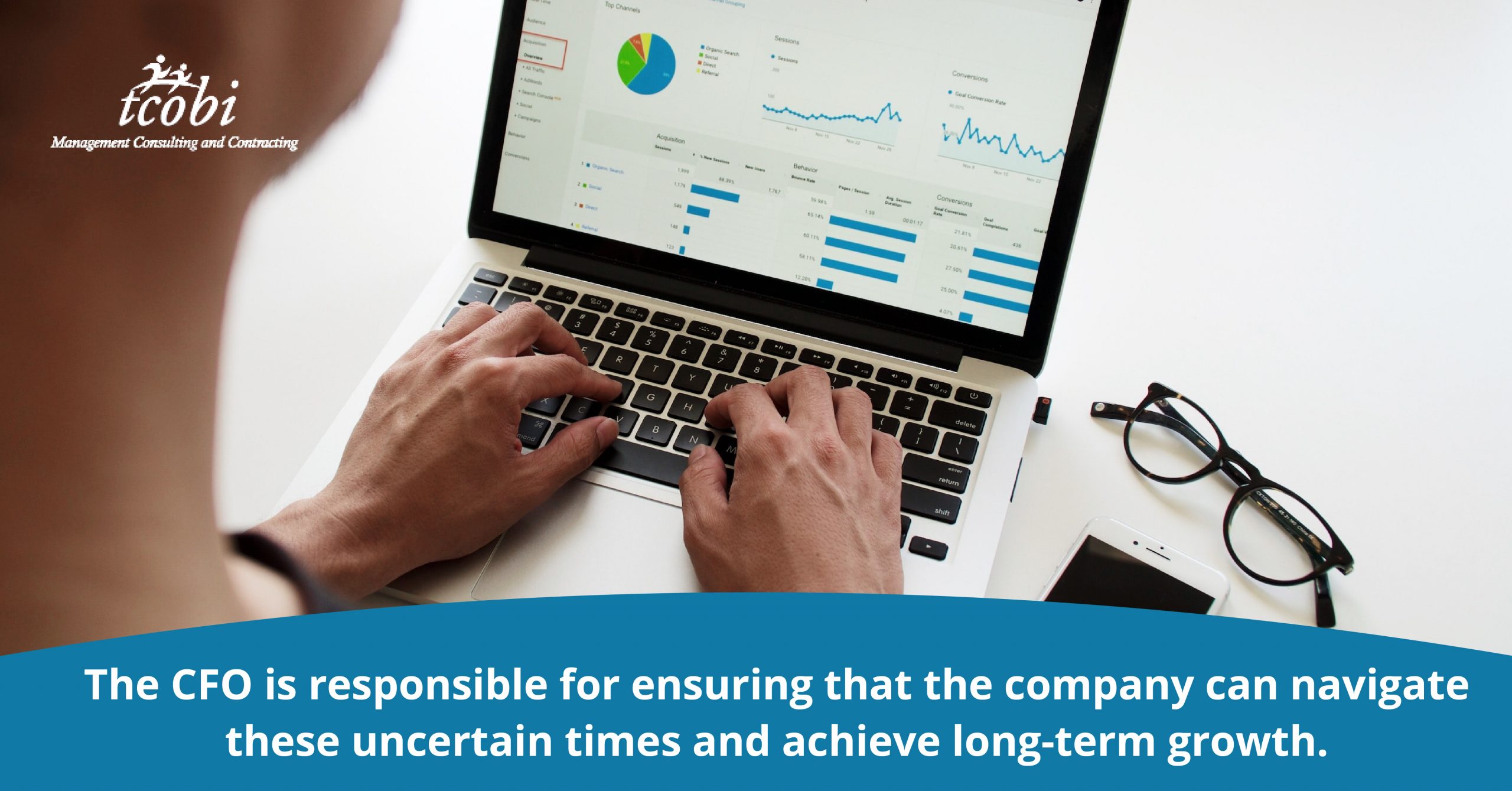Those in leadership and executive positions are always there when those…

The CFO’s Role in Navigating Volatility and Achieving Growth
The role of the CFO has evolved dramatically in recent years. No longer confined to a purely financial role, CFOs are now expected to help navigate their company through periods of volatility and achieve sustainable growth.
Volatility has become the new norm in today’s business environment. Economic conditions can change rapidly, and companies must be prepared to adapt their strategies accordingly. The CFO plays a vital role in helping the company navigate these choppy waters.
CFOs must help their companies navigate these waters by identifying risks and opportunities, developing strategies to mitigate risks and capitalize on opportunities, and ensuring that the company has the financial resources to execute them.
In this article, we’ll discuss the role of the CFO in navigating volatility and achieving growth. We’ll also look at some of the challenges CFOs face in these roles. Read on to learn more!
The Role of the CFO in Navigating Volatility and Achieving Growth
CFOs play a vital role in helping their companies navigate periods of volatility. Some of which are:
Identifying Risks and Opportunities
The first step in navigating volatility is to identify risks and opportunities. CFOs must be able to identify both external and internal factors that could impact the company’s growth.
External factors include macroeconomic conditions, changes in customer demand, new regulations, etc. Internal factors include operational efficiencies and changes in the company’s competitive landscape.
Once identified risks and opportunities, CFOs must develop strategies to mitigate risks and capitalize on opportunities. Doing so can help their companies navigate periods of volatility and achieve sustainable growth.
Developing Strategies to Mitigate Risks and Capitalize on Opportunities
Strategies to mitigate risks include hedging against currency fluctuations, diversifying the company’s customer base, etc. Strategies to capitalize on opportunities can include investing in new product development, expanding into new markets, etc.
CFOs must also ensure that the company has the financial resources to execute these strategies. This includes having a strong cash position, access to capital markets, and a robust forecasting process.
Ensuring Financial Resources are Available to Execute Strategies
Another role of CFOs in navigating volatility is to ensure that the company has the financial resources to execute these strategies. This includes having a strong cash position, access to capital markets, and a robust forecasting process.
CFOs must also be able to adapt their companies’ financial strategies in response to changes in the business environment. For example, if customer demand decreases, CFOs may need to adjust their forecast accordingly and find ways to reduce costs.
The Challenges Faced By CFOs in Navigating Volatility and Achieving Growth
While the role of the CFO has evolved in recent years, it comes with a unique set of challenges. Some of which include:
Managing Risk
CFOs are saddled with the responsibility of managing risk. This includes identifying risks, developing strategies to mitigate them, and ensuring that the company has the financial resources to execute those strategies. This can be a daunting task, particularly in periods of volatility.
Finding the Balance Between Short-Term and Long-Term Goals
Another challenge CFOs face is finding the balance between short-term and long-term goals. In periods of volatility, companies may be tempted to focus solely on short-term goals such as preserving cash or reducing costs.
CFOs must balance short-term goals (such as meeting quarterly earnings targets) and long-term goals (such as achieving sustainable growth). This can be a difficult balancing act, as the two often conflict.
For example, a CFO may be tempted to cut costs to meet quarterly earnings targets. However, this could jeopardize the company’s long-term growth prospects.
Access to Capital
Another challenge CFOs face is access to capital. In periods of volatility, obtaining financing from traditional sources such as banks can be difficult. CFOs must be creative in their search for capital, including tapping into the equity markets, issuing bonds, or taking out loans from alternative lenders.
CFOs must also ensure that their companies have access to capital through cash on hand, debt financing, or equity financing. They also have to manage expenses and ensure that the company has a strong cash position.
Final Thoughts
CFOs play a vital role in helping their companies navigate periods of volatility and achieve sustainable growth. To do this, they must identify risks and opportunities, develop strategies to mitigate risks, capitalize on opportunities, and ensure that the company has the financial resources to execute them.
If you’re looking for help in developing a strategy to navigate your company through these turbulent waters, Tcobi can assist. Our experts have years of experience helping companies achieve sustainable growth in today’s volatile business environment. Contact us today to learn more!



